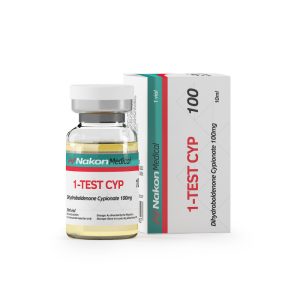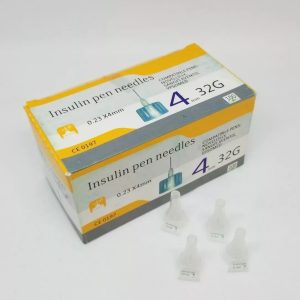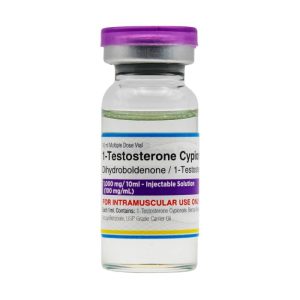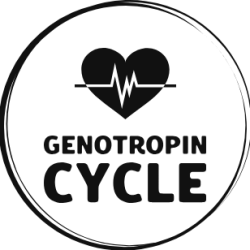Genotropin: Uses, Side Effects, Interactions, Warnings and Dosage
Genotropin is a growth hormone produced by Genentech, a biotechnology company. It is mainly prescribed to treat under-growth and growth retardation in children, but it is also used to treat muscular dystrophy, obesity and other conditions. It is also used for rejuvenation and weight loss. Genotropin can be used as tablets or injections, and it can be used as a single or combination treatment.
Uses
Genotropin is mainly used to treat specific growth hormone deficiency syndromes and to correct congenital undergrowth in children. It may also be used to treat muscular dystrophy, obesity, growth disorders, osteoporosis, HIV or AIDS, some cancers and other diseases. It is also used to increase muscle mass and increase bone density in older people to reduce the risk of fractures. It can also be used to increase energy levels and improve memory in older people. In some cases, genotropin is even used for rejuvenation and weight loss.
Side effects
Genotropin can cause some serious side effects. These include headaches, dizziness, muscle pain, joint pain, nausea, diarrhoea, loss of appetite, memory problems, fatigue and tiredness. It can also cause a rise in blood sugar levels, a rise in blood pressure, acne and an allergic reaction. This can cause chest pain, wheezing and shortness of breath. It is important to note that genotropin should not be used in patients with certain diseases or health conditions, including cancer, diabetes, heart disease or impaired immune function.
Drug interactions
Genotropin can have serious interactions when used at the same time as certain medications, supplements and herbs. Therefore, a doctor should be consulted before taking Genotropin. It may also interact with certain foods. Therefore, the doctor should be informed of all medicines, supplements and foods that the patient is taking. He or she should also be informed of all possible side effects and interactions before taking genotropin and should watch for signs of hyperglycaemia.
Warnings
It is important that patients are informed of all possible side effects and interactions before using Genotropin. People with certain diseases or health conditions should exercise caution before taking Genotropin. In addition, pregnant women, nursing mothers and children should consult a doctor before taking Genotropin. Possible side effects of Genotropin may include headache, dizziness, muscle pain, joint pain, nausea, diarrhoea, loss of appetite, drowsiness, fatigue and tiredness. If these symptoms occur, you should consult a doctor immediately.
Dosage
The dosage of Genotropin depends on a number of factors, including the person’s age, diagnostic and treatment status, severity of the condition, tolerance of the dosage and other factors. Therefore, the dosage of genotropin should only be given under the supervision of a doctor. The doctor may adjust the dosage of Genotropin taking into account all the factors mentioned above. It is important to stick to the recommended dosages. It is also important that the patient follows the doctor’s instructions carefully.
Conclusion
Genotropin is a growth hormone prescribed mainly for the treatment of under-growth, growth retardation, muscular dystrophy and obesity in children and can also be used for rejuvenation and weight loss in the elderly. Possible side effects of genotropin include headache, dizziness, muscle pain, joint pain, nausea, diarrhoea, loss of appetite, drowsiness, fatigue and tiredness. There can also be serious interactions with certain medications, supplements and herbs. Therefore, it is important that people with certain diseases or health conditions are cautious and that the dosage of genotropin is only taken under the supervision of a doctor.
Showing 1–12 of 4672 results
-

1 Testosterone Cypionate Euro Pharmacies
33,00 € Add to cart -

1- Test C / Dhb Mactropin
45,00 € Add to cart -

1-Test Cyp 100 Dragon Pharma
109,00 € Add to cart -

1-Test Cyp 100 Nakon Medical
94,00 € Add to cart -

1-Testosterone Cypionate (DHB) 10ml Euro-Pharmacies
70,00 € Add to cart -

1-Testosterone Cypionate DHB 75mg/ml, 15ml/vial USA Euro-Pharmacies
114,00 € Add to cart -

1-Testosterone Cypionate DHB 75mg/ml, 15ml/vial USA Pharmaceutical
114,00 € Add to cart -

1-TESTOSTERONE CYPIONATE NORDIC FUSION
69,00 € Add to cart -

1-Testosterone Cypionate Pharmaqo
103,00 € Add to cart -

10 amp-1-Testosterone Cypionate (DHB) – 100mg/ml 1ml-amp EU Euro-Pharmacies
66,00 € Add to cart -

10 amp-1-Testosterone Cypionate (DHB) – 100mg/ml 1ml-amp EU Pharmaceutical
66,00 € Add to cart -

10 amp-Boldenone Undecylenate (Boldenone) – 250mg-ml 1ml-amp EU Euro-Pharmacies
84,00 € Add to cart
